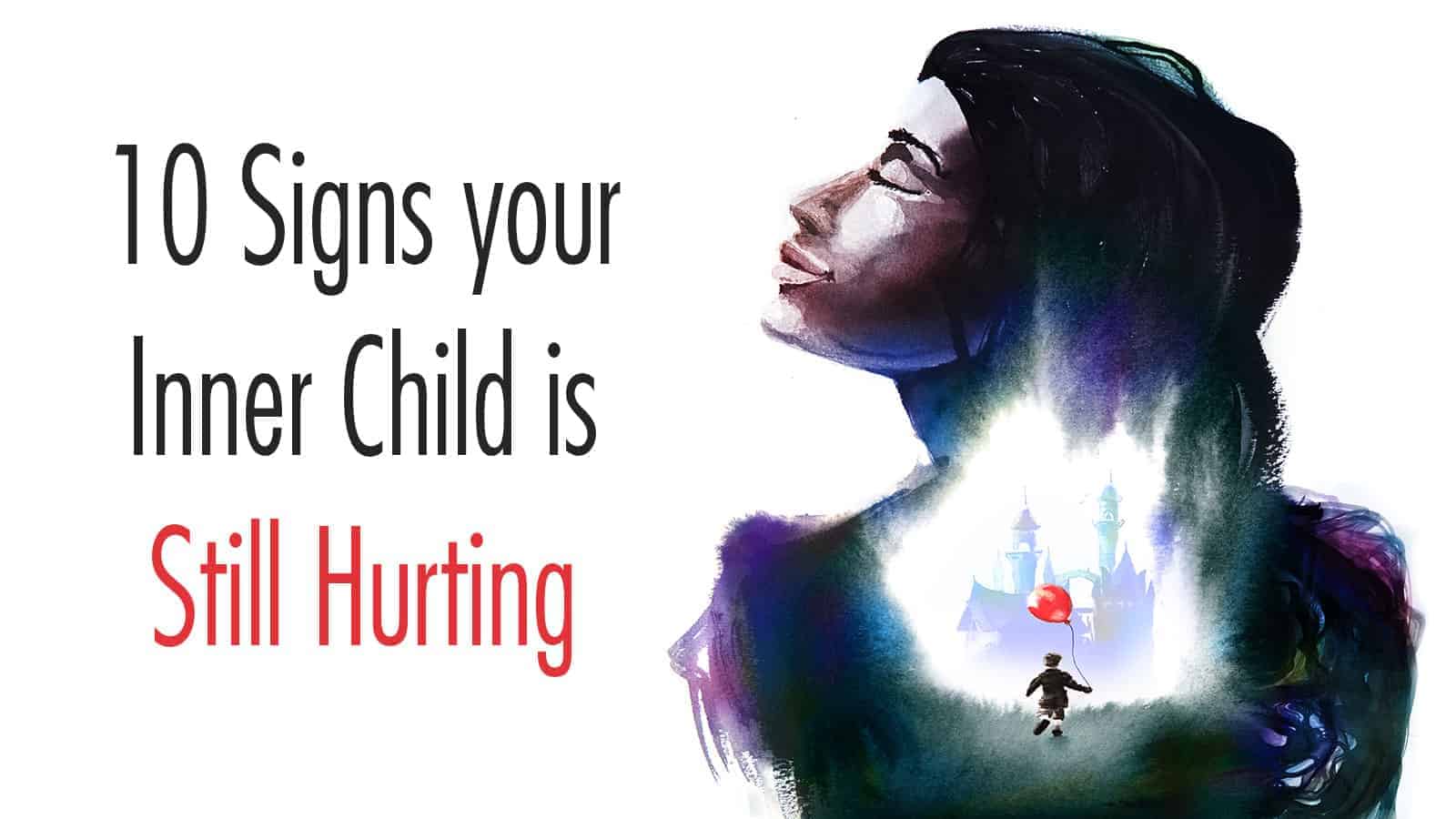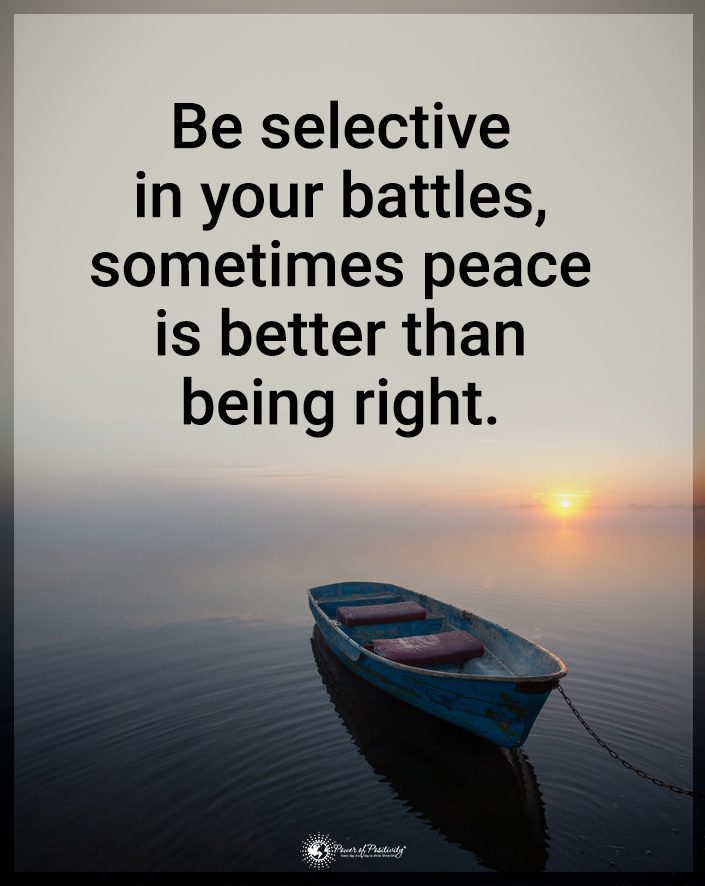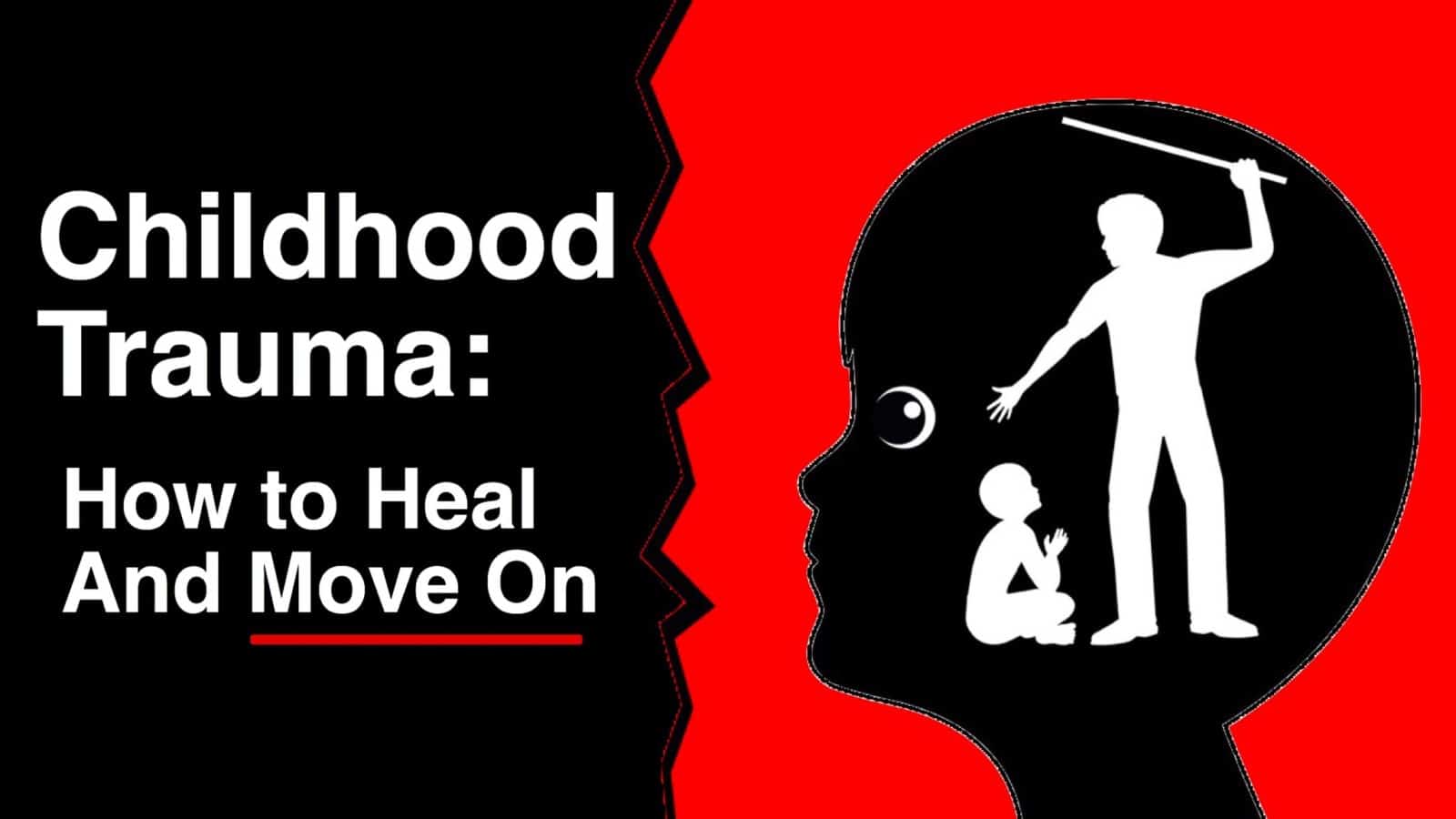How in touch with your inner child are you? Are you so in touch that running in the rain is still an adventure? Do you love to go outside and play with your kids? On the other hand, have you forgotten what it’s like to play? If you have free time, do you fill it up with more work to do? Do you get crabby when your shoes get wet because you had to step through a puddle?
Several adults still carry the pain of their childhood with them and as a result, have lost touch with or haven’t healed their inner child. This pain leaves deep wounds that may affect their ability to experience happiness, enjoy current relationships, accomplish success, or maybe even raise their children as they truly wish.
There are at least ten signs that your inner child is still hurting.
Is My Inner Child Real?
The Merriam-Webster dictionary defines an inner child as “the childlike usually hidden part of a person’s personality that is characterized by playfulness, spontaneity, and creativity usually accompanied by anger, hurt, and fear attributable to childhood experiences.”
A definition is an excellent start to making it real. Yet, it’s not like we physically carry our “little self” within our body and take it out like we do a wallet from our back pocket. Stephen A Diamond, Ph.D., addresses this in an excerpt of his book Psychotherapy for the Soul: Thirty-Three Essential Secrets for Emotional and Spiritual Self Healing. He states that our inner child is real in a metaphoric sense.
It is real in the idea of being a pattern of emotions, behavior, memories, and wishes, otherwise called complexes. He defines it as a “psychological or phenomenological reality.” In short, he continues to explain that adults are really just children who have aged. This makes sense, right? Everything we are right now is based on everything we have learned from our previous years stemming from our childhood.
We would like to believe that as we age, we gain experience and wisdom, which matures us into adults. Dutifully, we put aside our childhood selves through suppression, denial, or neglect to embrace adulthood. We see plenty of examples, including in ourselves, where that isn’t quite what happened. Many people are still acting in a manner that is susceptible to the desires, needs, and emotions of who they were as children.
Our duty to our “Inner Child”
Dr. Stephen A Diamond expresses that we should look at adulthood as the acceptance of the events of our past childhood and the continued parental responsibility toward our child self. He states that we should continue to nurture until we reach psychological adulthood.
Part of that psychological adulthood entails acknowledging the importance of our inner child, accepting the events and healing the emotions we built up during that time, and then learning how to communicate and meet the needs of our inner child as we progress through life.
10 Signs Your Inner Child is Still Hurting
Many behaviors can show us our inner child is still hurting. It’s important to understand that our inner child can be distressed for many reasons and causes. It doesn’t always need to be from severe abuse or neglect. It could be damaged or misunderstanding created from the actions related to past friendships, teachers, classmates, neighbors, relatives, or anyone who held any significance to you. The repercussions aren’t always obvious.
Many of our adult traits spawn from ways we chose to augment ourselves to improve or hide away personal qualities which we believed caused us pain. Additionally, the causes are not always intentional. For example, if your grandmother’s passing hurt you, that was not an act against you personally. Another example would be that maybe when you were young, your best friend had to move away.
Many things in life happen to us that we have no control over and are not purposefully happening to us.
Unfortunately, as children, we do not necessarily understand or care about the circumstances. We only care that we feel bad. Without someone there to help us through the pain and to understand, we harbor that pain within ourselves. The effects of unresolved grief build up over time and change how we perceive events, people, and ourselves.
For those who have experienced abuse or neglect, the effects have far-reaching consequences and more definitive signs. It will also require a lot of personal internal work, and maybe therapy, to ease your inner child’s pain.
Regardless of the cause, we have all learned to turn some of the damages into strengths. Perhaps we are more compassionate, extremely organized and detail oriented, driven for success, etc. With the advantages, we may also hide or compensate for weaknesses caused by the inner child being hurt.
A few of these signs that our inner child is still hurting may be:
-
Difficulty with boundaries.
You may not know how to create boundaries with others and therefore put your needs secondary or have difficulty saying “NO.” The boundaries may be too high for others, so you won’t put yourself out there for others. You may even show this in situations where you are intimate with someone even if you don’t feel totally comfortable with it.
-
Poor self-esteem.
This particular trait also encompasses many other side effects, such as not trusting in yourself or your abilities, thinking of yourself as “less than,” etc. This could result in constantly criticizing yourself. You may also develop body image issues and eating disorders.
-
Identity issues.
You may find yourself so accustomed to changing who you act like around other people that you don’t even know who you are.
-
Extremely competitive.
You feel you must always be the “best” and “on top.” Failure is not an option and not something you respond well to. You may feel driven to overachieve and strive for perfection.
-
Obsessive and needy.
You cling to people, grasping for any attention and approval. You will do anything not to lose anyone and strive to be a “people pleaser.” This may develop into hoarding, where you hate to let go of anything.
-
Difficulties with emotions.
You may have a hard time handling strong emotions from others and yourself and feel ashamed or guilty when you feel angry or sad. Additionally, you may have difficulty controlling anger, easily cry, try to avoid conflict, or “shut down” during an argument. You tend toward passive-aggressive or overly aggressive behavior.
-
Addiction-prone.
You easily attach yourself to drugs, alcohol, gambling, pornography, cigarettes, or other extreme obsessive tendencies. It is essential that you receive that rush of “feel good” hormones.
-
Avoid people.
You have extreme fear or anxiety when dealing with or being around people. This can show itself in varying degrees. It may just be anxiety with a lot of people in a social situation or any amount of people. You may go out of your way to have food and items delivered to you to keep from interactions. You tend to be a homebody.
-
Rebellious.
You may only feel energized and “yourself” during points of conflict. You may go out of your way to antagonize or harass people to start an argument or fight.
-
Anxiety with new experiences.
You may need to stay on a consistent routine and schedule because you feel anxious when things change. You have difficulty adjusting to unexpected or new events and may cling to your comfort zone to such an extreme that it is detrimental to learning new things or going to different places.
Final Thoughts on a Hurt Inner Child
As you can see, many symptoms can point to unresolved issues for your inner child that may affect you daily. You may have just accepted or tried to ignore many of these behaviors in yourself. After all, to face them means you must confront the pain that caused them.
Facing the pain and fears of your inner child is the second step to helping your inner child. First, you must acknowledge that your inner child exists within you and needs your support; then, you validate what you once felt. You will need to face what happened to cause the pain. It may be multiple things or just one.
After looking within to your memories of the incident, you may experience emotions like anger, sadness, remorse, and loneliness. It is essential that you feel each and every emotion. You may find that you need to go to therapy to help to handle it all. Once you have worked through all the feelings, however, you are on the path to showing your inner child the love and support you needed in the past. It is even advised to give your inner child affirmations daily to confirm your value.
Our child self or inner child is the foundation on which we have built everything about ourselves. If the foundation is cracked, then it needs to be rebuilt. Putting a bandage over it doesn’t fix the cause of the crack. It simply hides the fact that the inner child exists at all. Let your inner child have the voice and the right to feel the hurt so you can “kiss it and make it all better” and make yourself whole again.















 Community
Community

